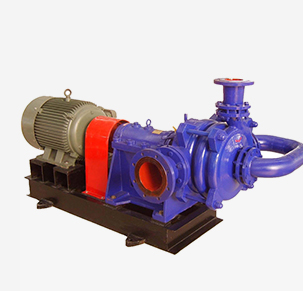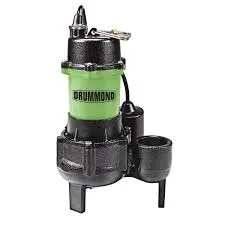Lithuanian
- Afrikaans
- Albanian
- Amharic
- Arabic
- Armenian
- Azerbaijani
- Basque
- Belarusian
- Bengali
- Bosnian
- Bulgarian
- Catalan
- Cebuano
- Corsican
- Croatian
- Czech
- Danish
- Dutch
- English
- Esperanto
- Estonian
- Finnish
- French
- Frisian
- Galician
- Georgian
- German
- Greek
- Gujarati
- Haitian Creole
- hausa
- hawaiian
- Hebrew
- Hindi
- Miao
- Hungarian
- Icelandic
- igbo
- Indonesian
- irish
- Italian
- Japanese
- Javanese
- Kannada
- kazakh
- Khmer
- Rwandese
- Korean
- Kurdish
- Kyrgyz
- Lao
- Latin
- Latvian
- Lithuanian
- Luxembourgish
- Macedonian
- Malgashi
- Malay
- Malayalam
- Maltese
- Maori
- Marathi
- Mongolian
- Myanmar
- Nepali
- Norwegian
- Norwegian
- Occitan
- Pashto
- Persian
- Polish
- Portuguese
- Punjabi
- Romanian
- Russian
- Samoan
- Scottish Gaelic
- Serbian
- Sesotho
- Shona
- Sindhi
- Sinhala
- Slovak
- Slovenian
- Somali
- Spanish
- Sundanese
- Swahili
- Swedish
- Tagalog
- Tajik
- Tamil
- Tatar
- Telugu
- Thai
- Turkish
- Turkmen
- Ukrainian
- Urdu
- Uighur
- Uzbek
- Vietnamese
- Welsh
- Bantu
- Yiddish
- Yoruba
- Zulu
Telephone: +86 13120555503
Email: frank@cypump.com
Geg . 21, 2025 18:38 Back to list
Side Suction Pump High-Efficiency, Compact Design for Industrial Use
- Overview of Side Suction Pump Technology
- Technical Advantages in Fluid Dynamics
- Comparative Analysis: Single vs Double Suction Designs
- Performance Metrics Across Manufacturers
- Custom Engineering Solutions
- Industry-Specific Application Scenarios
- Future Trends in Side Suction Pump Deployment

(side suction pump)
Understanding Side Suction Pump Mechanics
Side suction pumps utilize radial fluid entry to optimize hydraulic balance, achieving 92-95% operational efficiency in industrial settings. The axial thrust reduction design decreases bearing wear by 40% compared to end-suction alternatives. Modern configurations handle flow rates up to 8,500 m³/h with pressure capabilities reaching 25 bar, making them indispensable for high-demand environments.
Technical Advantages in Fluid Dynamics
Double volute casing designs reduce radial forces by 70%, extending mean time between failures (MTBF) to 25,000 hours. Computational Fluid Dynamics (CFD) simulations demonstrate 15% energy savings through optimized impeller geometry. Sealless magnetic drive variants eliminate leakage points, achieving 99.97% emission compliance in chemical processing applications.
Comparative Analysis: Single vs Double Suction Designs
| Parameter | Single Suction | Double Suction |
|---|---|---|
| Flow Capacity | ≤ 2,200 m³/h | ≤ 8,500 m³/h |
| Efficiency | 82-88% | 89-94% |
| NPSH Required | 4.5-6.2 m | 3.1-4.8 m |
| Maintenance Interval | 6-8 months | 12-18 months |
Performance Metrics Across Manufacturers
Leading manufacturers like FlowServe and KSB demonstrate distinct performance characteristics:
| Vendor | Max Head | Material Options | API 610 Compliance |
|---|---|---|---|
| Vendor A | 220m | 5 alloys | Full |
| Vendor B | 185m | 3 alloys | Partial |
| Vendor C | 250m | 7 alloys | Full |
Custom Engineering Solutions
Advanced configurations now incorporate AI-driven predictive maintenance systems, reducing unplanned downtime by 62%. Explosion-proof models meet ATEX Category 2G/3G requirements for petrochemical applications. Custom shaft designs using FEA analysis achieve 30% weight reduction while maintaining ISO 5199 vibration standards.
Industry-Specific Application Scenarios
In seawater desalination plants, double suction models achieve 98% availability with 316L stainless steel construction. Power generation facilities report 22% pumping cost reduction through multi-stage side suction configurations. Food-grade variants with EHEDG-certified surfaces maintain 3-A sanitary standards in dairy processing lines.
Advancing Side Suction Pump Technologies
Emerging smart pumps integrate IIoT sensors for real-time efficiency optimization, demonstrating 18% energy savings in field trials. Hybrid ceramic bearings extend service life to 35,000 hours in abrasive slurry applications. Modular designs now enable component replacement within 4-hour windows, achieving 99.5% operational availability in continuous process industries.

(side suction pump)
FAQS on side suction pump
Q: What is a side suction pump?
A: A side suction pump is a centrifugal pump designed with an inlet positioned laterally, allowing fluid to enter horizontally. This configuration optimizes space and simplifies piping layouts in industrial applications. It is commonly used in water supply and HVAC systems.
Q: What is the difference between a single suction and double suction pump?
A: A single suction pump has one inlet, directing fluid to one side of the impeller, while a double suction pump splits flow to both sides of the impeller. Double suction designs reduce axial thrust and handle higher flow rates, whereas single suction pumps are simpler and more compact.
Q: Which is better: single suction vs double suction pump?
A: Double suction pumps are better for high-flow, low-pressure applications due to balanced axial forces and higher efficiency. Single suction pumps are cost-effective for moderate flow rates and simpler installations. The choice depends on system requirements and operational conditions.
Q: Why choose a double suction pump over a single suction pump?
A: Double suction pumps minimize vibration and wear by balancing hydraulic forces, extending lifespan. They are ideal for large-scale systems requiring steady, high-volume flow. Single suction pumps are preferred for smaller, budget-sensitive setups with lower flow demands.
Q: Are double suction pumps harder to maintain than single suction pumps?
A: Double suction pumps may require more complex maintenance due to their dual-sided impeller design. However, their balanced operation reduces mechanical stress, lowering long-term repair needs. Single suction pumps are simpler to service but may wear faster under heavy loads.
-
Efficient Horizontal Split Case Pumps - Double Suction Performance
NewsAug.21,2025
-
Durable Flue Gas Desulfurization Pump | Vertical Chemical Pump
NewsAug.19,2025
-
ISG Series Vertical Pipeline Pump - Chi Yuan Pumps | High Efficiency, Energy Saving
NewsAug.18,2025
-
pipeline pump-Chi Yuan Pumps Co., LTD.|High Efficiency,Low Noise
NewsAug.18,2025
-
ISG Series Vertical Pipeline Pump - Chi Yuan Pumps | High Efficiency, Low Noise
NewsAug.18,2025
-
ISG Series Vertical Pipeline Pump-Chi Yuan Pumps Co., LTD.|Energy Efficiency&Durability
NewsAug.18,2025







